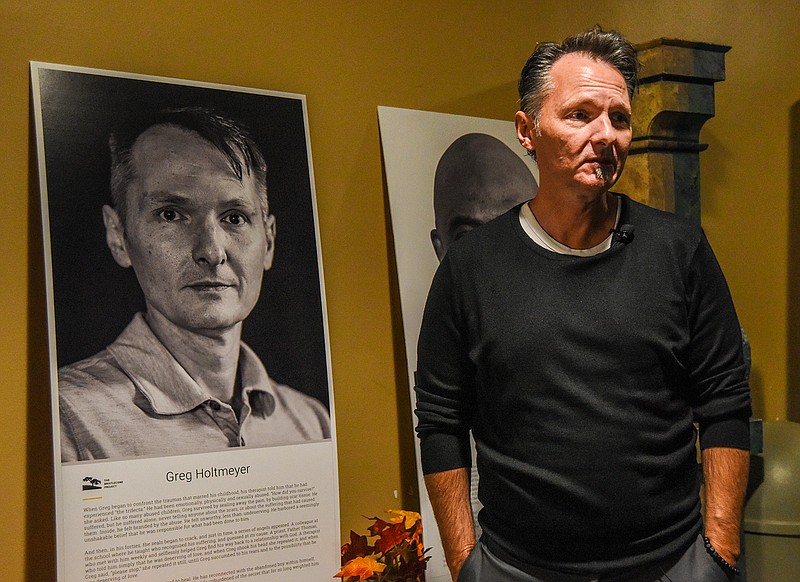One in six boys younger than the age of 18 are sexually abused in the United States.
About 95 percent of child sex abuse cases involve someone the child knows.
While formal education typically relies on a "Stranger Danger" approach to talk about sexual abuse, an annual conference is working to provide a deeper understanding of sexual abuse against males and dispel the stigmas surrounding it.
The 2021 Show Me a Helping Hand conference, which is in its fourth year, is a two-day educational conference sponsored by Children's Justice Act and hosted at Lincoln University.
Presentations began Thursday and concluded Friday afternoon.
Conference Director Greg Holtmeyer said programming often talks about sexual abuse in general, but the conference has always focused on the sexual abuse of males.
While sexual abuse rates are higher for women, Holtmeyer said, cases involving male survivors are often overlooked or not well understood by the public.
Approximately 26 million men in the United States have been sexually abused, he said.
While one in six are abused before the age of 18, Holtmeyer said the rate of abuse goes up to one in five when the first year of college or military service are incorporated.
By comparison, one in four girls are sexually abused before they turn 18.
Additionally, men are often abused at a younger age, Holtmeyer said, with the average age of a male victim being 5 years old and a female victim being 6 years old.
"The numbers are much larger than what people know about," he said.
Holtmeyer, who also serves as the access and ability services coordinator at Lincoln, said the Show Me a Helping Hand conference is the only conference of its kind in the Midwest, which is why it often attracts attendees and speakers from around Missouri and out of state.
"We've had people from as far as the state of California that have found out about it and they come here for the conference," he said. "We bring in some of the best speakers from around the country."
Speakers, which include abuse survivors, health care workers and mental health experts, came from as far as Ohio, Washington and Arkansas this year.
Holtmeyer said the conference attracts state Children's Division workers, counselors, therapists, law enforcement and medical personnel, as well as some members of the general public who want to learn more.
There were roughly 240 people registered for the conference this year.
"It's gone fantastic," Holtmeyer said. "A lot of positive comments from people saying they're coming back next year, and they're going to bring other people with them next year, so that's our goal is to help it grow and continue. We'd love to fill the auditorium at some point in time."
The goal of the conference is to raise awareness and provide education in an area that's not commonly talked about.
Holtmeyer spoke about generational trauma, while other speakers covered how to report sexual abuse, sexual abuse prosecution, diagnosing trauma and general education on the topic.
"The more we can talk about it, we take some of the shame and guilt out of it," he said. "Because we're males, the number one factor is shame. It's the reason men don't come forward."
Holtmeyer said shame can often make male survivors behave differently from female survivors, like taking longer to report the crime if they do at all.
Male survivors take an average of 20 years to report, he said, and half of male survivors develop Post-Traumatic Stress Disorder. The suicide rate among male survivors is 10 times higher than the national rate.
Additionally, he said, survivors who go through prolonged trauma tend to live 10-15 years shorter.
"It's a sentence that we serve for life," said Holtmeyer, a survivor himself. "We can recover but we'll always have those scars, and it's a matter of accepting our scars."
"We have to get the guys to come forward and get the help and we have to change society's opinion about it. The shame is not the victim's fault. The shame does not belong to the victim. The shame belongs to the perpetrators," he added.
Holtmeyer said he hopes the conference can help survivors and society as whole understand the crime isn't the victim's fault and they don't need to carry shame.
Even counselors, he said, are often not taught how sexual abuse is different for male survivors.
"In schools, we typically only teach Stranger Danger, but that's 5 percent of the time and when it's stranger danger, it's a one time occurrence," Holtmeyer said. "The other 95 percent of the time it often happens for months or years."

